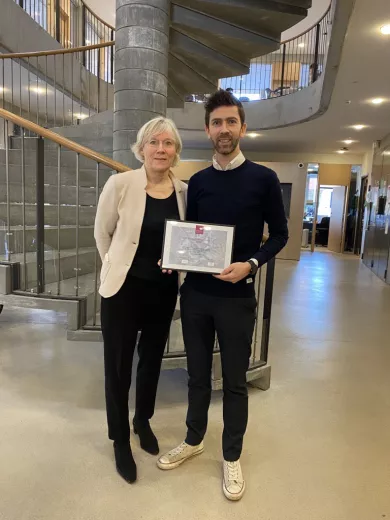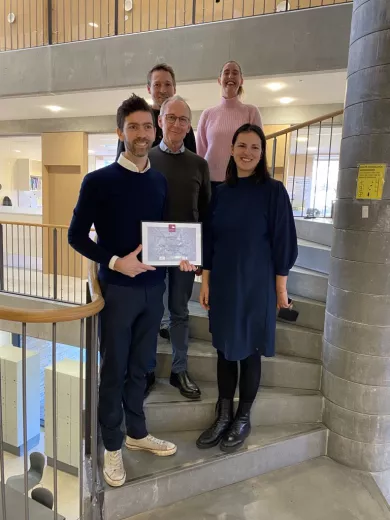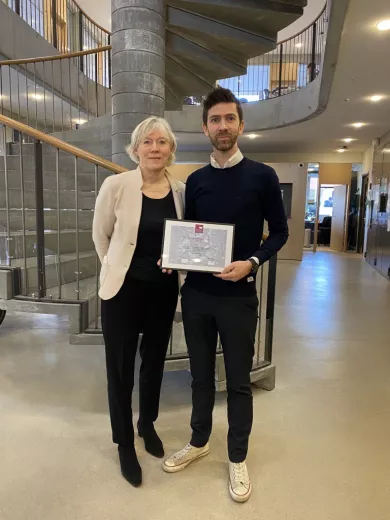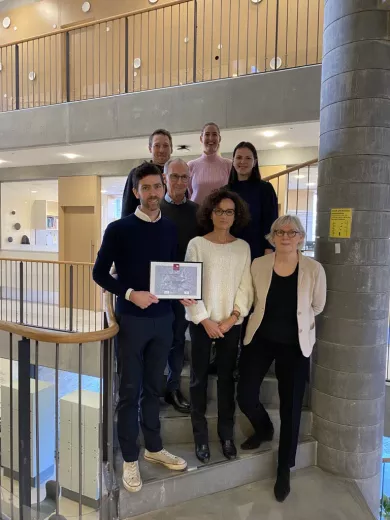
Project description
Bifidobacterium are often found in high abundance in the gut of breastfed infants and considered to be beneficial for immune development. Yet, few Bifidobacterium-derived metabolites mediating hostmicrobial cross-talk are currently known.
The objective is to study a novel group of peptides, which Bifidobacterium appear to produce in the infant gut, as well as the peptides’ability to fortify the intestinal barrier function ifunction in early life.
More specifically, the project will :
- investigate Bifidobacterium species and strain dependent production of the peptides in vitro,
- identify and characterize the enzyme(s) responsible for production of the peptides in Bifidobacterium species,
- determine the most abundant peptides in the infant gut and their dynamics and associations to Bifidobacterium species during the first 6 months of life,
- and elucidate the effects of selected and most relevant peptides on intestinal barrier function using human intestinal organoids.
4 questions to Dr. Henrik Roager
You are the 2023 international grant winner. Your project studies Bifidobacterium-derivedpeptides in the context of early life and their effects on intestinal barrier function. Bifidobacteria are well known bacteria, could you explain to us how this research is innovative?
I am really excited and honoured to receive the Biocodex Microbiota Foundation international research grant. This grant will allow us to study a novel group of molecules and their potential to affect gut barrier function in the context of infancy. We know quite a bit about bifidobacteria, but understanding how bifidobacteria may contribute to intestinal barrier function is still elusive. Our research has the potential to provide new insights into how bifidobacteria may affect intestinal barrier function. This could inform new strategies to strengthen immune and barrier function during infancy.
What impact could the results of your study have on clinical practice or daily life?
The development of the intestine during infancy is really important. Our results could down the line result in better preventive and treatment strategies for impaired intestinal barrier function during early infancy, which could be particular relevant for children born preterm or by C-section. Our results may also help researchers and industry to better select and develop probiotics, prebiotics such as human milk oligosaccharides, and postbiotics.
This is the first time the Foundation rewards collaboration bringing together Danish, Japanese and American teams. Why did you make this choice?
I decided to bring together a team of four outstanding researchers that would all be excited about the project. Our expertise complement each other and the three of us have previously successfully collaborated on a similar project related to another group of microbial metabolites. Therefore, I am convinced that this is the ideal team to carry out the proposed research – despite the challenge of working across three different time zones.
How do you see the positioning of the Biocodex Microbiota Foundation in research?
I think it is fantastic that a foundation like the Biocodex Microbiota Foundation has committed themselves to help advancing microbiota research! I think this is a very important agenda. The integrity is held high by the many top experts within the microbiota field that assess the grant applications and contribute to disseminating knowledge.
The project brings together four leading labs across Denmark, Japan and USA with complementary expertise within microbiota-metabolite-mucus interplays to provide novel insights into how Bifidobacterium derived peptides may fortify gut mucosal health.
Gut Microbiota International Grant's winning projects

Microbiota-dependent regulation of bile acids in control of metabolic homeostasis (acronym: MRBM)

Functional microbiota dysbiosis induces visceral pain: role of maternal milk on microbiota implantation under stress condition


Linking the early life resistome and microbiome maturation


Randomized controlled trial evaluating the effect of transplantation of fecal microbiota in children with autism spectrum disorders and gastrointestinal symptoms
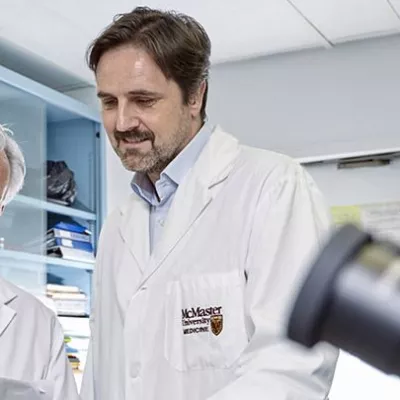

Clostridium difficile-induced post-infectious Irritable Bowel Syndrome: Study of the mechanisms and treatments


Targeting gut microbial drug metabolism to enhance the treatment of Parkinson’s disease


A precision medicine approach to treat alcoholic hepatitis


